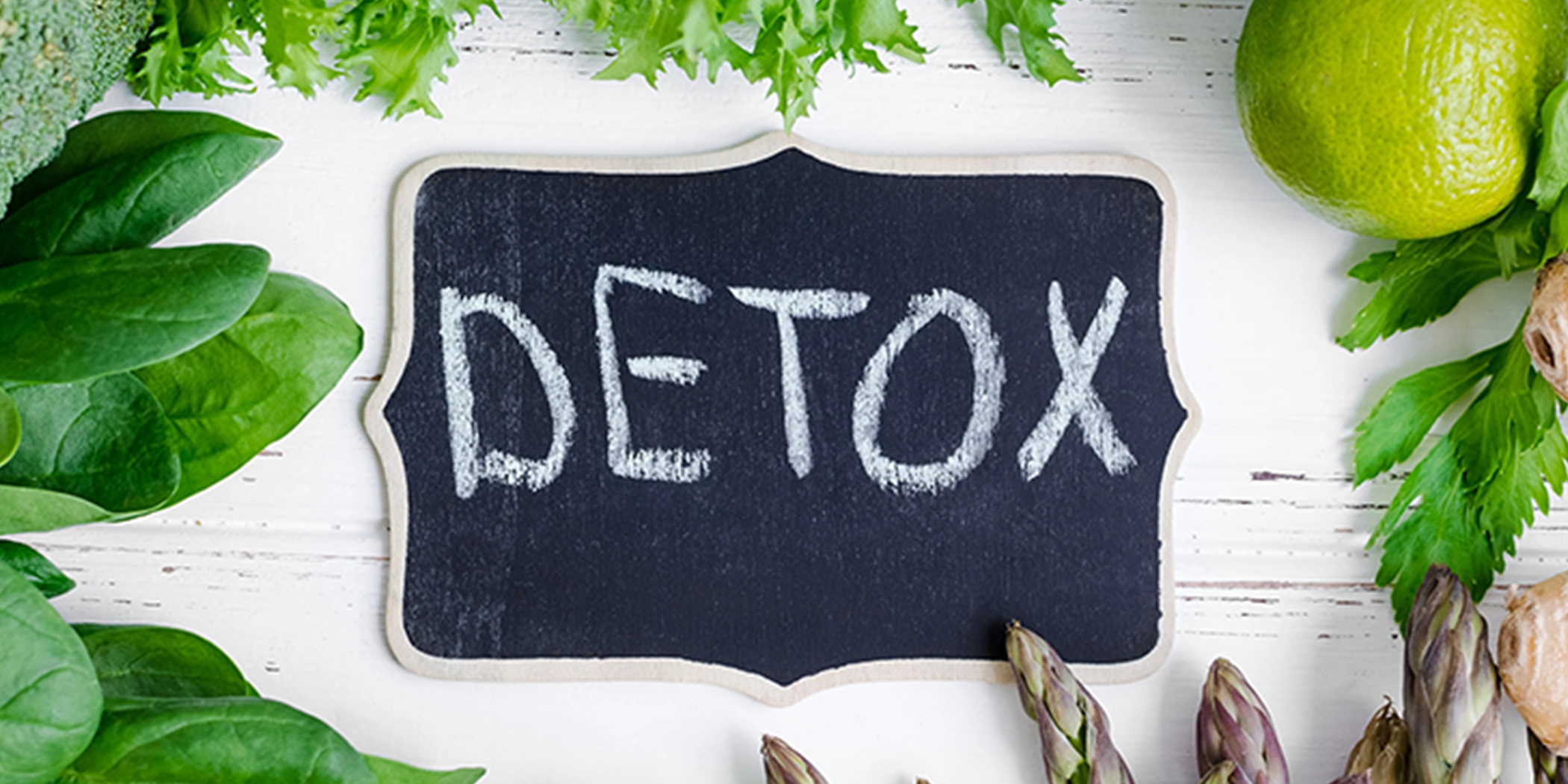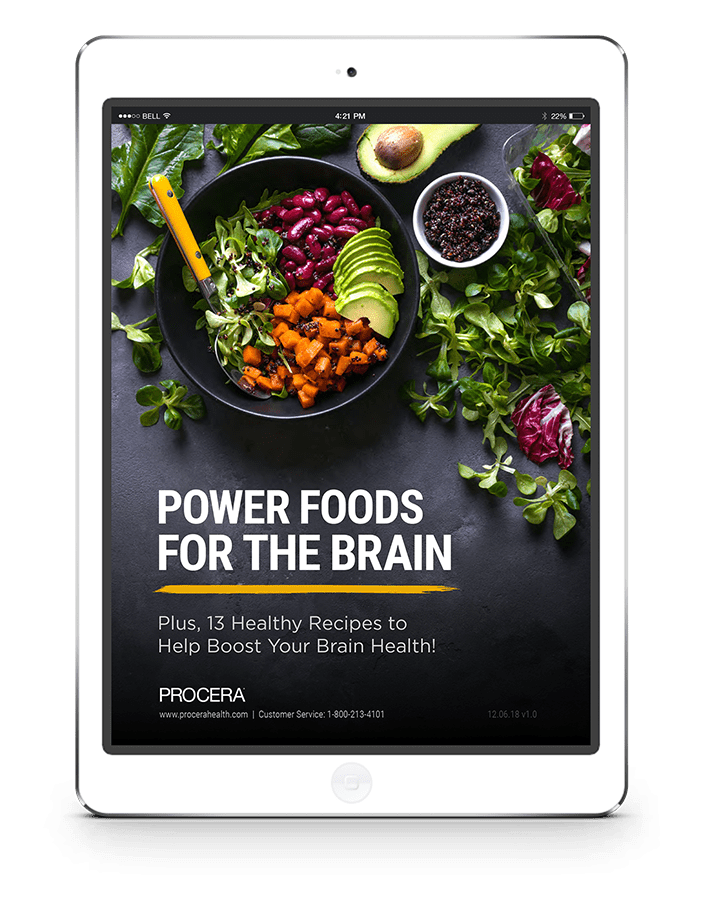
Your liver and kidneys might normally get all the credit when it comes to detoxification, but did you know that your body also has another extensive system in place that helps detoxify your brain? If you’re wondering what a “brain detox” is all about" or “how can I clean my brain?” – you’ve come to the right place.
Detoxification is a real buzzword these days, immediately catching our attention when we see it, read it, or hear about it. In the Spring months, people are more interested in detoxes and liver cleanses than at any other time of the year. Physiologically, detoxification is an essential cellular function. When the body detoxifies, it packages debris in the form of foods and toxins so that it can be easily excreted from the body. We eliminate this debris through various mechanisms such as our gastrointestinal tract, genitourinary tract, respiratory tract, and our sweat glands, and it requires the recruitment of multiple organs such as the liver, lungs, gallbladder, skin, kidneys, and yes, the brain.
Throughout the normal course of life, we are exposed to pro-inflammatory foods, heavy metals, chemicals, and prescription drugs. Our natural detoxification systems can become overwhelmed and trigger underlying health issues such as mitochondrial dysfunction, metabolic deficiencies, immunotoxicity, and brain inflammation. As a result, the body's energy is diverted and metabolically active organs such as the brain, the heart, and the muscles start to suffer. It is then we start to feel unwell and experience not only fatigue and weakness but slow processing and cognitive difficulties.
What Is the Glymphatic System?
The glymphatic system refers to the system of blood vessels in the body that removes waste products from the brain and central nervous system. The glymphatic system is most active while you sleep, which is why getting a good night’s rest is imperative for feeling mentally sharp. The glymphatic system works by:
- This system depends on cerebrospinal fluid (CSF), which enters spaces next to smaller blood vessels that lead to the brain.
- CSF interchanges with interstitial fluid, the fluid surrounding the brain cells. This helps form a glymphatic vasculature that “detoxifies” the brain by collecting waste, such as proteins
- This system then carries this waste away from your brain and through your body so it can be dispelled.
- While we’re sleeping, there is increased glymphatic activity due to greater availability of space between interstitial and cerebrospinal fluid. Exercise can also boost glymphatic activity, according to recent studies.
When the glymphatic system becomes disrupted, it can result in brain fog and poor memory. Many researchers believe that a well-functioning “clearance system” in the nervous system is critical for the prevention of serious brain health issues. Many experts believe that your brain’s glymphatic system may need to work harder if you’re exposed to many toxins, especially over a long period of time. While not a toxin, sleep deprivation is also linked to impaired mental capabilities. Aging also disrupts glymphatic function, such as by decreasing blood flow to the brain/pulsing of the arteries, although healthy habits can help slow this down.
Getting Started With A Daily Brain Detox
A brain detox, or brain cleanse, is intended to help protect against serious brain health issues and optimize cognitive functions such as memory, focus, and information processing. The detox outlined below will likely require some adjustments to your lifestyle such as prioritizing sleep, taking certain supplements that help support brain function, eating an anti-inflammatory diet, exercising, and maybe even fasting from time to time. Here are 4 tips to get you started:
1. Get Enough SleepGetting enough sleep each night is one of the best ways to support your brain’s natural detoxification processes. Most adults need about seven to nine hours of sleep per night to operate at their best. Here are tips for helping you get the best sleep you can:
- Go to bed and wake up at approximately the same time every day, including on the weekends
- Sleep in a very dark and cool room
- Try white noise to help drown out disturbances
- Read something relaxing to calm your mind. If racing thoughts keep you up, try journaling before bed.
- Consider trying supplements, such as Procera Sleep which contains 6 natural ingredients and a small dose of melatonin
Due to the gut-brain connection, your diet plays a pivotal role in managing your cognitive health. Gut-related and intestinal problems can increase inflammation, which can alter how well your organs work, including the brain, and can contribute to issues such as depression, fatigue, anxiety, and lack of concentration/focus. Your brain needs a steady supply of nutrients — including protein, healthy fats, antioxidants, omega-3 fatty acids, and essential vitamins and minerals — for you to feel your best. Emphasize these brain foods in your diet in order to fight free radical damage and boost your nutrient intake:
- Vegetables, such as leafy greens, beets, broccoli, bell peppers, carrots, etc.
- Fresh fruits, including berries, oranges, etc.
- Herbs and spices, such as ginger, turmeric, garlic, rosemary, etc.
- Fermented, probiotic foods like yogurt, kefir, kimchi and sauerkraut
- Nuts and seeds
- Wild-caught fish, including salmon, sardines, and mackerel
- Healthy fats, such as avocados, olive oil, coconut oil, and grass-fed butter
- You also want to drink plenty of water throughout the day to stay hydrated, which is important for supporting your lymphatic system and keeping your energy up
There’s some evidence suggesting that exercise may increase glymphatic activity and also improve neurotransmitter function, which plays a role in learning and memory. Additionally, exercise can help you cope with stress, sleep more deeply, and have more energy in general.
Adults need 30-45 minutes of moderate exercise each week, which can be divided into shorter sessions. High-intensity exercise can also benefit brain health in various ways, such as by increasing blood flow to the brain and supporting mitochondrial function.
Ideally try mixing up your workouts to keep things interesting and to challenge your body, such as by running, lighting weights, walking, hiking, cycling, yoga, dancing, etc.
4. Targeted Supplementation
You can help support your body’s natural ability to detox by taking certain plant-based supplements that nourish the liver, kidneys, gut, and brain. Consider some of the following, based on your goals and current health:
- Milk thistle for liver support
- NAD+ for mitochondrial support
- L-glutamine for gastrointestinal support
- Vitamin C for antioxidant support
- Green tea extract for a boost in energy and antioxidant effects
- Probiotics for digestive support
Procera offers several terrific supplements to support daily detox and the everyday health of both your brain and gut - Procera Protect, Procera Probiotic, and Procera Mega Mushroom.








.png?width=1350&name=Procera%20Logo%20W%20Tagline%20White%20(3).png)
Comments
Add Comment